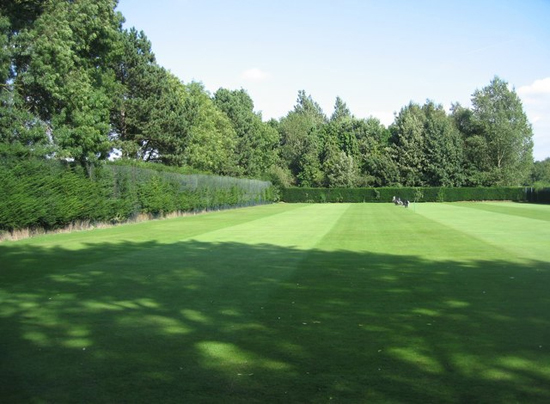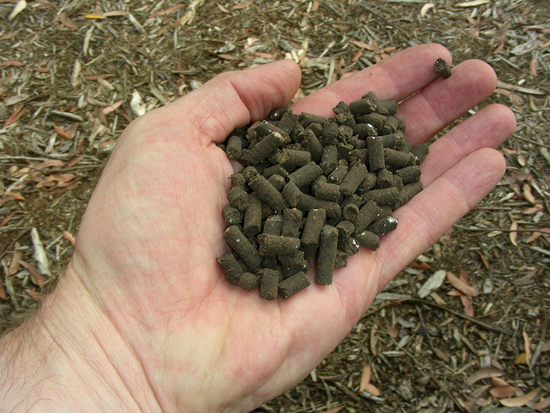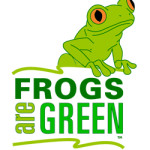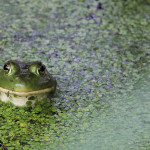Guest post by Philip Brown
Now-a-days, it is totally possible to care for your beautiful lawn organically. Organic lawn care is the practice of caring for your lawn and garden by using organic fertilizers. This becomes what is known as ‘sustainable’ lawn care. With environmental concerns for children, pets, and wildlife when trying to get rid of pests and weeds, there are beneficial ways to care for your lawn with organic lawn fertilizers. There are a few methods that one can try to maintain their lawn that are great for the environment:
- Compost or compost tea:
Reduces the need for chemical fertilization and encourages healthy soil that allows turf to resist lawn pests. - Lawn aeration:
Helps in getting oxygen into the soil as soil gets depleted of nutrients and organic matter. It also helps reduce thatch and lessen soil compaction. - Rechargeable electric mulching mower:
Reduces the need for fertilization. It is quiet and inexpensive and environmentally friendly. The mulch and compost can be used together and raked over the aerated lawn, which invigorates the turf and strengthens and rebuilds weakened structures. - Corn gluten meal:
Beneficial in controlling stinkweed, black medick and shepherd’s purse. This is relatively new in organic lawn care. - Nematodes:
These are microscopic parasites that destroy insect pests, which you can spray on the lawn to control the crane fly, June beetle or Japanese beetle.
There are many other organic fertilizers on the market that benefit lawn maintenance. Whether it is a small piece of personal land or a company or tourist attraction with lots of land to display and care for, caring for the lawn and maintaining it in ways that are beneficial to the environment and cost effective is great.
There are so many ways to care for one’s lawn. Just following these methods is a great and easy way to start caring for your lawn in an environmentally healthy way. Simple things, such as aeration and building compost, to use as organic fertilizer are the first steps. Having a rechargeable electric mulching mower to add grass clippings to the compost makes caring for the lawn and fertilizing it that much easier. Adding in things, like the corn gluten meal, to control weeds and nemotodes, as a natural insect control are also beneficial and eco-friendly. There are many advantages to organically taking care of your lawn, no matter what method you use.
About the Author: Philip Brown is a lover of green, healthy lawns. A former lawn care services professional, Philip now spends his time sharing what he knows with others and blogging about it at The Lawn Enthusiast.







Philip,
All good points and organic lawn care is certainly a good step in the right direction, but a more substantial step in the sustainable direction could be to simply reduce lawns. The American lawn is, in many ways, inherently unsustainable. The types of grass we grow are essentially non-native species, chosen for their appearance rather than their place in any given climate or ecosystem. The fact that they need such dedicated fertilization and pest control (not to mention copious amounts of water) is a testament to their lack of natural relevance.
While the grasslands and savannahs of the world may be extremely rich in biological medium (science actually says more so than deciduous forests), but the grass that we grow for lawns is a manufactured mono-culture. While it may look tidy and have a degree of carbon sequestration, it remains an energy-intensive amenity that is getting used less and less. They promote a lack of development density and its resulting inefficiencies in infrastructure.
Why not veer towards natural landscapes around homes? Wildflower gardens, xeriscapes, native grasses, that are then supplemented with nearby parks or public spaces for the activity component that lawns bring (arguably their most compelling argument)? The American lawn seems like an antiquated aspect of our national image (actually supplanted from England) that may have a questionable degree of relevance in the modern era with unnecessary environmental effects.
Thanks Tyler for that very insightful response. – Susan
I personally tend to agree with every thing that is written in
“The Benefits of Organic Lawn Fertilizers |”. Thanks for all the details.
Thanks a lot,Angel
I love animal, forest, I love this article, because it is about the green solution, Organic Fertilizers is always good and friendly with nature. Thanks for posting mate, Susan.
I’d never heard of Nematodes before, and I do have a lot of beetles in the yard. Going to try this! Thanks so much for the tip!
Yes, many natural ways and good for the environment and wildlife. We hope all will stay away from those nasty pesticides. – Susan
Great and very comprehensive article. Excellent job! Thanks!